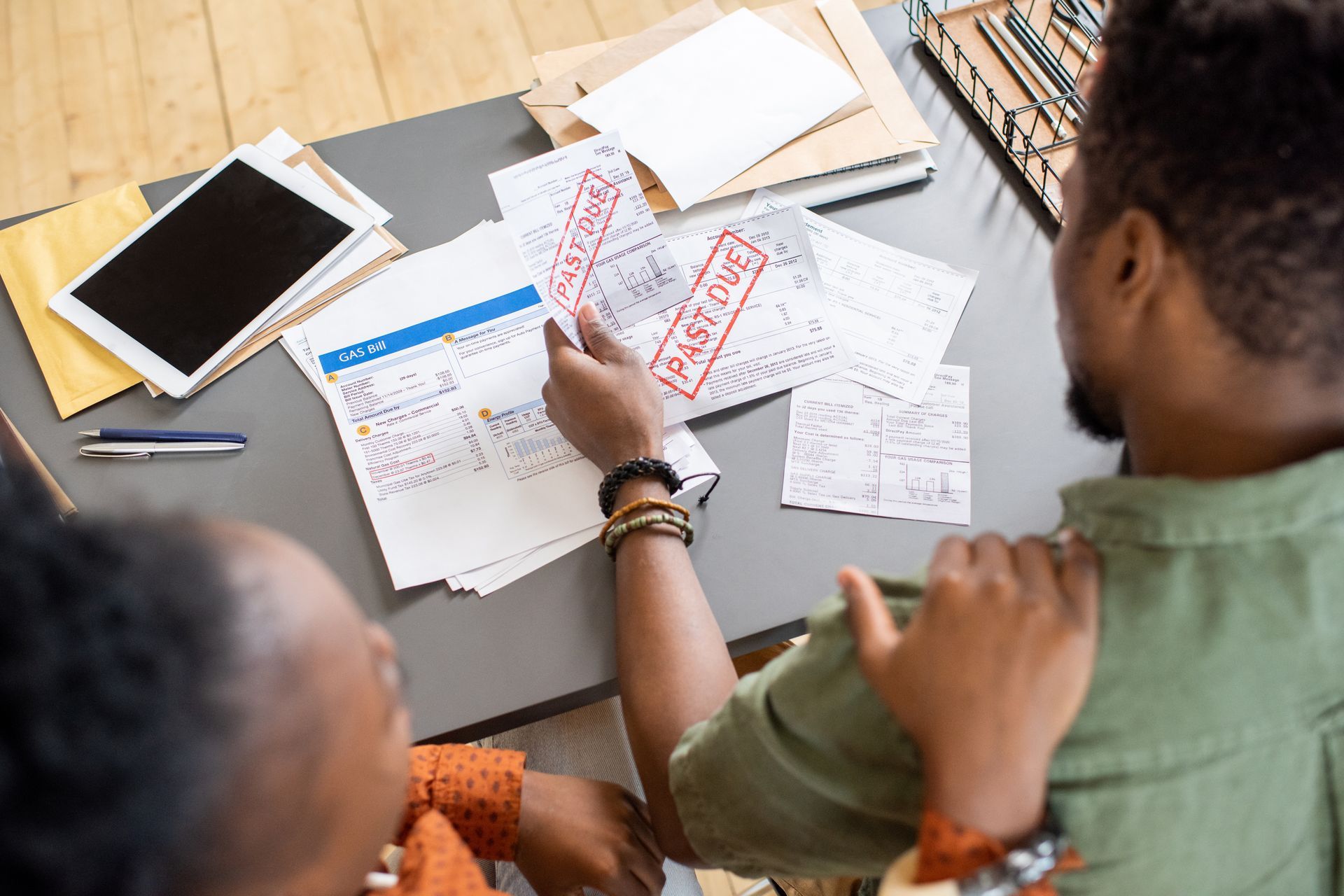Student Loan Debt Relief FAQs
Dealing with student loan debt can be tough. It’s hard to understand the laws, relief programs, and advice online.
At Float Debt Solutions, we’re here to make it simple. This FAQ page gives clear answers to common questions about student loan bankruptcy. It covers discharge options, default, repayment plans, and how our services can assist you.
Led by Natalie Jean-Baptiste, a well-known student loan attorney, our mission is to help you with your student loans.
With over 12 years of experience, we aim to provide clarity, confidence, and strategy for your
loan relief journey.

General Student Loan Discharge & Eligibility
Can student loans actually be discharged in bankruptcy?
Yes — student loans can be discharged in bankruptcy. It’s not automatic, and you must meet a legal standard known as undue hardship.
To prove undue hardship, you file a separate lawsuit within your bankruptcy case called an Adversary Proceeding.
Many people wrongly believe discharge is impossible, but with the right evidence and strategy, it is absolutely achievable.
What is "undue hardship" in the context of student loans?
“Undue hardship” is the legal requirement you must meet to have student loans discharged in bankruptcy.
Most courts use the Brunner Test, which asks you to prove:
- You can’t maintain a minimal standard of living if forced to pay your loans.
- Your financial hardship is likely to continue long-term.
- You’ve made a good-faith effort to repay your loans.
This is a high standard, but it’s one that borrowers successfully meet every year — especially with strong documentation.
Does the "Brunner Test" apply to all student loan discharge cases?
Nearly all federal courts—including those in New York, Long Island, Westchester, and surrounding areas—apply the Brunner Test. Some states have a slightly different standard.
However, the main requirements are still the same. You must show ongoing financial hardship and good-faith efforts to repay.
Does it matter if my student loans are federal or private for discharge?
Yes. Both federal and private student loans can potentially be discharged if you meet the undue hardship standard. The process is similar for each, but:
- Federal loans offer additional repayment options outside of bankruptcy.
- Private loans often rely more heavily on bankruptcy as a relief option.
This difference can impact how you prove the “good faith” element of the Brunner Test.
Bankruptcy Process & Your Student Loans
What is the process for student loan discharge in NY bankruptcy?
If you file for Chapter 7 or Chapter 13 bankruptcy, you must also file an Adversary Proceeding.
This is a lawsuit within your bankruptcy case that is specifically for your student loans.
In this proceeding, you present evidence showing why repaying your loans would create undue hardship.
A judge then decides whether all or part of your loans can be discharged.
This is the key step behind the question:
“Can student loans be included in bankruptcy NYC?”
Yes — but only through the Adversary Proceeding.
How does bankruptcy affect student loans in New York if they are not discharged?
If the court denies your student loan discharge:
- Your student loans survive the bankruptcy.
- Collections can resume after your bankruptcy ends.
- However, your other debts may be eliminated, freeing income to manage your student loans more effectively.
Many borrowers still see significant overall relief even if their student loans remain.
What documents do I need to prepare for a student loan undue hardship claim?
Strong documentation is critical. You may need:
- Detailed income/expense statements
- Several years of tax returns
- Student loan statements
- Medical records (if applicable)
- Disability statements (if applicable)
- Proof of job searches
- Proof of attempts to enter affordable repayment plans
- Evidence of consistent budget limitations
Anything that supports your financial struggle and its likely persistence can be helpful.
Alternative Student Loan Relief Options
What are the best student loan repayment plans in New York?
The best plan depends on your income, loan type, family size, and long-term goals. Federal options include:
- Standard Repayment
- Graduated Repayment
- Extended Repayment
- Income-Driven Repayment (IDR): PAYE, SAVE, IBR, ICR
These plans can significantly reduce monthly payments for NY borrowers.
Are there any student loan forgiveness options in NYC besides bankruptcy?
Yes. Several major forgiveness programs are available:
- Public Service Loan Forgiveness (PSLF)
- Teacher Loan Forgiveness
- Total & Permanent Disability (TPD) Discharge
- Closed School Discharge
- Borrower Defense to Repayment
Eligibility requirements can be strict, so it’s important to understand each program’s criteria.
How to get out of student loan default NY?
For federal loans, you typically have three options:
- Loan Rehabilitation – 9 voluntary payments in 10 months
- Loan Consolidation – consolidate into a new Direct Loan
- Paying in Full – rare, but an option
We help borrowers in Manhattan, Brooklyn, Queens, Staten Island, Long Island, and Westchester find the best options for their needs.
What relief exists for private student loans?
Private student loan relief is more limited. Options include:
- Direct negotiation
- Refinancing
- Settlement
- Bankruptcy discharge (if undue hardship is met)
Private loans almost never offer forgiveness or income-driven repayment plans.
Working with Float Debt Solutions



Who is Natalie Jean-Baptiste?
Natalie is a highly respected student loan attorney and the founder of Float Debt Solutions. She has:
- Over
12 years of specialized experience
- Helped clients discharge
nearly $1 million in student loan debt
- Personally discharged her
own six-figure student loan debt through bankruptcy
Her unique mix of expertise and lived experience makes her one of the most trusted voices in this field.
Is the online course right for me?
The online course is ideal if you want:
- A DIY approach with expert guidance
- A step-by-step roadmap for the bankruptcy discharge process
- A cost-effective alternative to hiring a full-service attorney
It’s the most comprehensive, attorney-designed
DIY student loan bankruptcy course online.
When should I consider a personalized coaching session?
Book a one-on-one coaching session if you:
- Have complex or unusual circumstances
- Need personalized strategy
- Want Natalie to evaluate your discharge eligibility
- Need help analyzing repayment, default, or forgiveness options
- Are already pursuing DIY relief and need expert review
Sessions are $300/hour and deliver immediate, high-value insights.
Do you provide legal representation?
Float Debt Solutions focuses on:
- Expert coaching
- Consulting
- Education and DIY empowerment
Natalie does not file documents or represent clients in court through this service. If full representation is required, we can explain how to find the right student loan attorney in your state.
